This article is written in layman's terms for non-tech-savvy travelers trying to become more tech-savvy. You'll learn about VPNs and how to use one to watch US Netflix overseas and keep your personal information secure while connected to public WiFi hotspots.
tl;dr:Try one of our Top 5 VPNs for Travelers that still work with Netflix in 2018. Otherwise keep reading and learn something new.
Have you ever been traveling internationally and tried to get a dose of your favorite home-style laughs with Steve Carell by watching The Office (US), only to discover that the title isn't available on Netflix in Costa Rica (or Indonesia, or Thailand, etc)?
That's because streaming services like Netflix, Hulu, and Amazon Prime have licensing deals with networks that are restrictive by geographic regions. So just because all eight thousand seasons of Family Guy are available to watch on US Netflix, doesn't mean they will be available in a different country. On the flip side of the coin though, sometimes it works to your advantage, like if you've exhausted your country's content library and are looking for some new titles, because titles can come out FASTER in other countries than in the USA. For example, I was able to watch Wolf of Wall Street on Netflix in Costa Rica about a year before it became available for streaming in Netflix USA. Other times there's just a different selection in general.
Then there's Hulu – the most ad filled pay-for-streaming service I've ever seen; but that's neither here nor there. They don't even offer access to ANY of their content library outside of the USA. And lastly there's Amazon Prime, who probably don't care what you do, as long as you do it on Amazon, but I have the least experience using their streaming video – in that I never have.
So how do you watch US Netflix, Hulu, and Amazon Prime while outside of the US?
Easy! You just use a VPN, also known as a Virtual Private Network, to reroute your Internet traffic to the USA from wherever you are in the world, and then to Netflix's servers so that they think you're in the States when you're actually in a country your friends have never heard of.
That is, it used to be easy… before Netflix and the streaming companies caught on and implemented measures to stop you from using a VPN. Now in order to do it, you've got to find a VPN that isn't blacklisted by Netflix – which has become increasingly difficult. Each computer around the world has a unique IP address. Well, that's not entirely accurate, but for the most part, you only share an IP address with people in your home who share your Internet connection, or potentially with your neighbors because Internet service providers aren't giving each home a unique IP anymore. But regardless, you're typically only sharing your IP address with a handful of people. So in the case of VPNs, where hundreds or possibly thousands of people are using a single IP address to log into Netflix, it becomes a red flag to Netflix so they (correctly for the most part) assume it's a VPN and add it to their list of blocked IP addresses. And that's why it's no longer as easy as it used to be.
In reality, I don't think the streaming companies ever cared. As long as you paid your subscription fee each month, who cares where you're streaming from right? When VPNs became mainstream practice, it just meant more subscribers to Netflix. But the networks and production studios cared. And anyone with a geographically restrictive licensing deal cared. Because companies like Netflix (are supposed) to pay big money for licensing access in different regions. So, you cheating your way into US Netflix with a free VPN was costing the networks, who put pressure on Netflix, who in turn put an end to your criminal streaming enterprise ways, because shit floats down stream. (Get it? “Stream”?)
That's why if you try to use any free VPN or many of the paid VPNs to watch Netfix or Hulu, you'll come across these error messages:
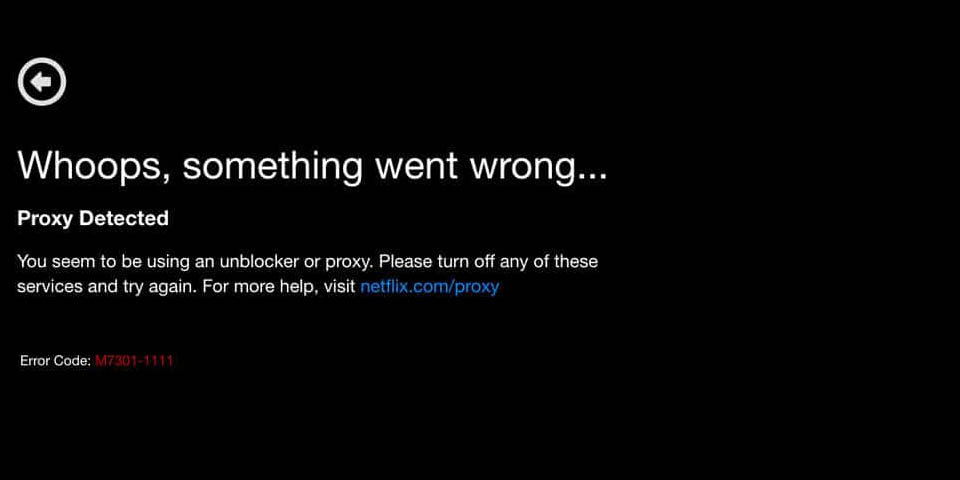
Netflix Proxy Error
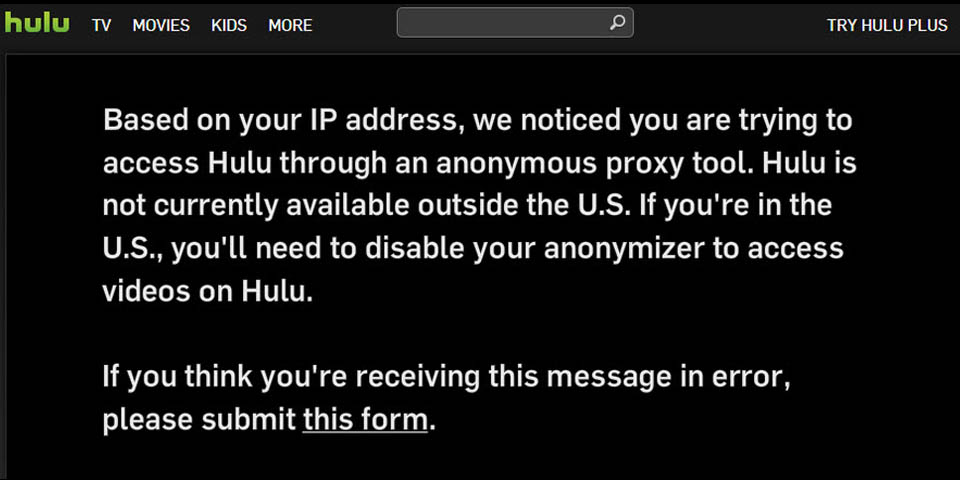
Hulu Proxy Error
Wait, those error messages talk about “proxies”. I thought we were talking about VPNs?
Proxy means substitute. A proxy lets you go online under a different IP address identity. It's a form of a VPN. So for all intensive purposes of this article, we're talking about the same thing here.
Okay, times have changed. Get to the point. How do I watch US Netflix overseas in 2018?
There are two ways I'm going to explain to you today. The first is to use a VPN that is still able to bypass Netflix's proxy restrictions, which I'm guessing is doing so by limiting the number of people who can use a dedicated IP address to watch Netflix so that it doesn't sound the shared IP alarms. And the second is to create your own VPN. But first, let me briefly dive into what a VPN is, how they work, and why they matter to travelers. Then I'll recommend a few VPNs that will work for your needs and still work with Netflix. (Or you can skip ahead.) And lastly I'll show you how to make your own for free (if you still have a home with Internet access back in the USA).
What is a VPN and why does it matter for travelers?
Like I said, a VPN stands for Virtual Private Network, and it's a network of computers around the world that encrypt your Internet traffic and let you appear as if you are anywhere in the world that the VPN has a server. So although you're thinking, “Can't criminals and hackers use this type of technology to do unscrupulous things?” Yes, absolutely. But normal privacy-concerned Internet users like yourself use it every day for non-criminal reasons too. Big businesses have been using VPNs for many years to allow their international employees to securely access private company info on their servers. And if you don't work for a major corporation, you're certainly entitled to your privacy and security online too. Free WiFi hotspots are notoriously some of the weakest secured and most unsafe ways to access the Internet ever, and a VPN allows you to bypass the local hackers and securely transmit your personal data across unsecure open networks.
So as a traveler, I should be using a VPN anyway? Even if I don't care about accessing US Netflix?
Yes. Especially if you're running an online business or blog and regularly access your website backend, FTP, Dropbox, online banking accounts, etc. But in a nutshell.. yes.
Which VPNs still work with Netflix?
If you're going to use a VPN for the security reasons mentioned above, you may as well choose one that works with Netflix so that you can have your cake and stream it too. To save you time, I researched some of the best VPNs on the market to determine which ones could still be used to watch Netflix as of February 2018. There are definitely others available, but do you really need 20 options? Try these top 5 first and see if they satisfy your needs and your price range. The reviews on all of these VPNs were positive, however, please drop a comment and let me know if your particular experience varies so that I can update the list accordingly. If you find that a VPN service listed below does not work as expected, they all come with a money back guarantees (although the number of days vary).
FYI – Some of the links to VPNs listed below contain an affiliate link, which means I earn a small commission for referring you, and it doesn't cost you anything additional. If you found this article helpful, please use my links below to sign up which helps pay for more great content like this. Most VPNs on the market have an affiliate program to join, so I'm not trying to steer you in any direction just for a commission. I found the best ones that will meet your needs first, and then joined their programs second if they had one.
Top 5 Best VPNs for International Travelers (That Work With Netflix)
Please note that the top three VPNs listed below specifically advertise that they work with Netflix, while the last two do not directly say on their website, but I found out through support forums.
#1) NordVPN
NordVPN is the number one rated VPN on the market by a ton of major tech publications and top of my list. Their price is right and they specifically advertise that they can be used for watching Netflix. Aside from that, they offer a host of features for businesses and consumers. If you were going to start anywhere, NordVPN is a good place.
URL: NordVPN.com
Number of servers: 2100+ servers in 61 countries
Platforms: Windows, Linux, MacOS, Android, iOS
Logs traffic: No
Monthly Plan: $11.95/month
Annual Plan: $69/year
Accepts Bitcoin: Yes
Money Back Guarantee: 30 days
Specifically Advertises “Works With Netflix US”: Yes
Travel is Life Deal: Click here for 72% off a 2-year plan
#2) Private VPN
Private VPN is an easy to use and extremely affordable VPN that has more servers than any other VPN listed here with over 3000+ servers in 55+ countries. Their annual price puts them at $54/year and they advertise on their site that they work with Netflix.
URL: PrivateVPN.com
Number of servers: 3000+ Servers in 55+ Countries.
Platforms: Windows, Linux, MacOS, Android, iOS
Logs traffic: No
Monthly Plan: $8.21/month
Annual Plan: $54.00/year
Accepts Bitcoin: Yes
Money Back Guarantee: 30 days
Specifically Advertises “Works With Netflix US”: Yes
#3) ExpressVPN
ExpressVPN is a mid-priced option for a VPN that won't set you back more than a Benjamin each year, works with Netflix, has a healthy amount of worldwide servers, and an extremely high encryption 4096-bit encryption rate.
URL: ExpressVPN.com
Number of servers: 1,500+ throughout 145 cities in 94 countries.
Platforms: Windows, MacOS, Android, iOS, Linux
Logs traffic: No
Monthly Plan: $12.95/month
Annual Plan: $99.84/year
Accepts Bitcoin: Yes
Money Back Guarantee: 30 days
Specifically Advertises “Works With Netflix US”: Yes
#4) StrongVPN
StrongVPN is another top rated and affordable VPN for travelers with over 12,000 positive reviews and it won't set you back more $70/year on their annual plan. As noted about Buffered above, they don't specifically advertise Netflix on their site but I've been informed that they go out of their way to provide US IP addresses that still work.
URL: StrongVPN.com
Number of servers: Number of servers unlisted. 44 cities in 24 countries.
Platforms: Windows, MacOS, Android, iOS
Logs traffic: No
Monthly Plan: $10.00/month
Annual Plan: $69.96/year
Accepts Bitcoin: Yes
Money Back Guarantee: 5 days
Specifically Advertises “Works With Netflix US”: No
#5) TorGuard
Last but not least, TorGuard has a whopping 3000+ servers across 55+ countries (like PrivateVPN also). Sounds impressive, but I only need a few that work. 🙂 They also offer an anonymous e-mail package starting at $6.95/month, or you can bundle the e-mail and VPN for less than buying them individually.
URL: TorGuard.net
Number of servers: 3000+ Servers in 55+ Countries.
Platforms: Windows, Linux, MacOS, Android, iOS
Logs traffic: No
Monthly Plan: $9.99/month
Annual Plan: $59.99/year
Accepts Bitcoin: Yes
Money Back Guarantee: 30 days
Specifically Advertises “Works With Netflix US”: No
Which VPN is best for travelers?
Any of the VPNs above will work for an international traveler like yourself. I specifically had you in mind when I perused the Internet in search of the best VPN for travelers. However, if you've got specific requirements outside of watching Netflix, writing your blog, doing online banking, logging onto social media, or other day to day tasks, leave a comment with what you need to do and I'll try my best to facilitate.
Are there any free VPNs that still work with Netflix?
Unfortunately, none that I've found. But if you know of one and are reading this, please let me know in the comments. The problem with free VPNs is that each server is often flooded with users, so they become instant red flags to Netflix and Hulu. So typically if you do find a free VPN that works, it won't work for very long. The paid VPNs are going to be able to afford to switch up their IP addresses as needed or minimize the amount of people on each server. There are a number of other reasons to go with a paid versus a free VPN, but this article is about Netflix so I'll leave it at that.
Are VPNs legal in every country?
Not a clue. As far as I know they are legal in most countries, but I can't tell you with certainty if they are legal in every country around the world. Like China for example? Careful. North Korea? Kim Jong-Unlikely. Be sure to do your own due diligence before using your VPN in whatever country you visit. Just because the tool itself may be legal doesn't mean everything you do on it will be legal. So a general rule of thumb: don't be a dumbass.
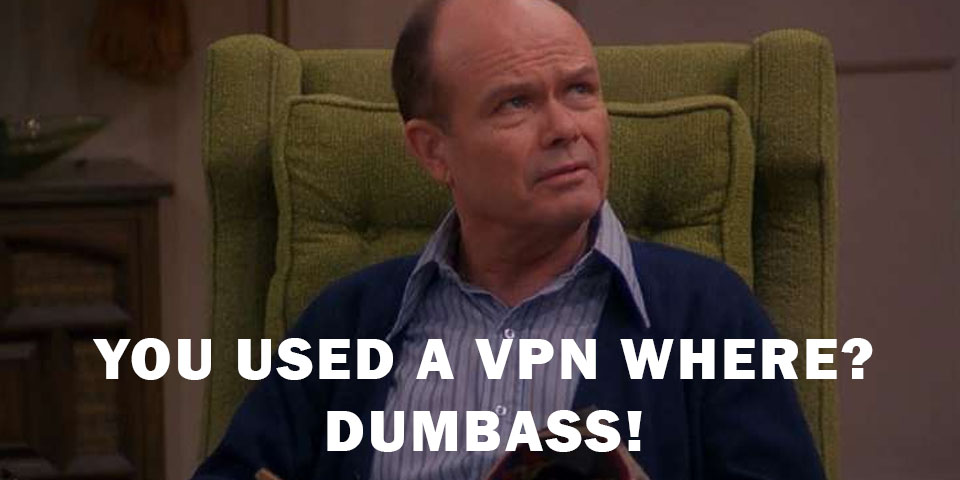
Are VPNs against the terms of service of Netflix, Hulu, and Amazon Prime?
Most definitely. But I won't tell if you don't. And luckily the moral police aren't reading this blog. I got enough flack as it is from my video on how to bypass Wifi time restrictions in coffee shops and airports. So save your judgement for judgement day. It's up to you how you use the travel hacks on this website. As Professor Farnsworth says, “Technology isn't intrinsically good or evil. It's how it's used. Like the Death Ray.”
How do I create my own VPN?
I promised you that after I showed you the best paid VPNs, I would teach you how to build your own for free. And here goes…
Essentially a VPN is just connecting you from one computer to another in the USA and then using that second computer to route your traffic. It's also encrypting your traffic, but if all you care about is the routing part, you can do that yourself. All you need is a computer back home in the US that stays turned on and is permanently connected to the Internet. Windows actually has the built-in ability to function as VPN server using point-to-point tunneling protocol (PPTP). Routing your Internet traffic from a public WiFi hotspot through your home network is still going to be more secure than just using the Wifi hotspot even if you're not encrypting the data.
How do I setup a VPN server on Windows 10?
Windows 10 and previous versions of Windows have a feature called Incoming Connection that enables you to set up a VPN server to connect remotely to your home network and then access the Internet from there. For step-by-step instructions for Windows 10, visit the geniuses at Pure Infotech via that link.
How do I setup a VPN server on Mac OS X?
Apple offers a program called Mac OS Server for $19.99 (okay technically not free, but a one-time purchase) that turns your computer into a server. Once you have that program, you can follow the step-by-step instructions provided by iMore on how to use the program to create your own VPN.
I thought you said you were going to teach us how to do it for free? You just linked us to step-by-step instructions.
The reality is that most of you, including myself, aren't going to go with the option of setting up your own VPN to save the equivalent of $6/month when you could just pay for one and be done with it. The process is a bit technical in nature and it also opens new kinds of security issues by allowing remote access to your home network. I'd rather make all that someone else's problem by paying for a VPN while simultaneously avoiding the problem of my US computer shutting off from a power surge and losing my VPN when I need it most. So that's why I glossed over the instructions. The links provided will get you properly setup though if you decide to go that route.
Thanks for reading. Drop a comment if you have any questions or suggestions. Be sure to share this article with your travel buddies and teach them how to access the web safely and enjoy their favorite US content from anywhere in the world. Happy travels and safe browsing!
If you like it then you should've put a Pin on it!
Want to share this article on your favorite travel or technology boards? Use our special Pinterest friendly graphic below.
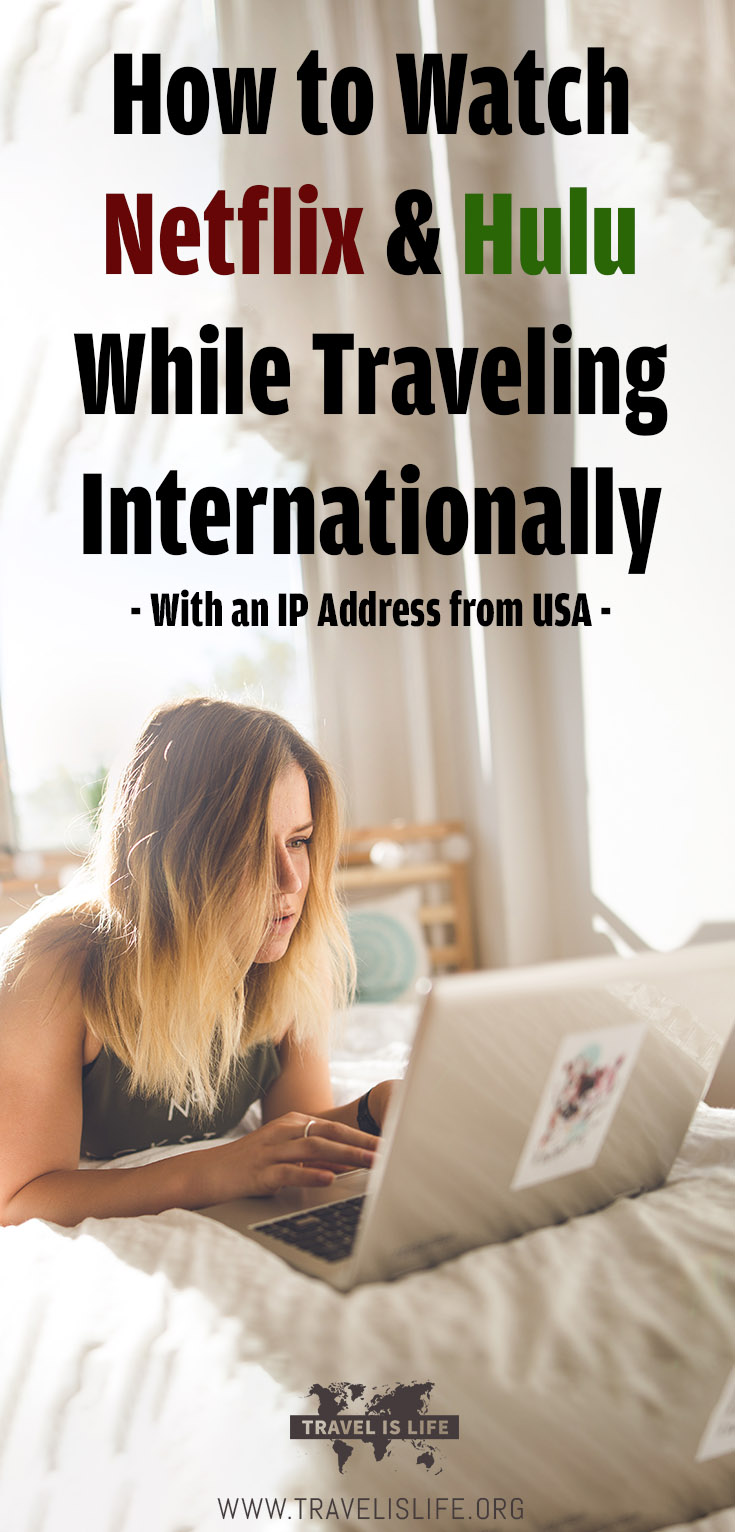

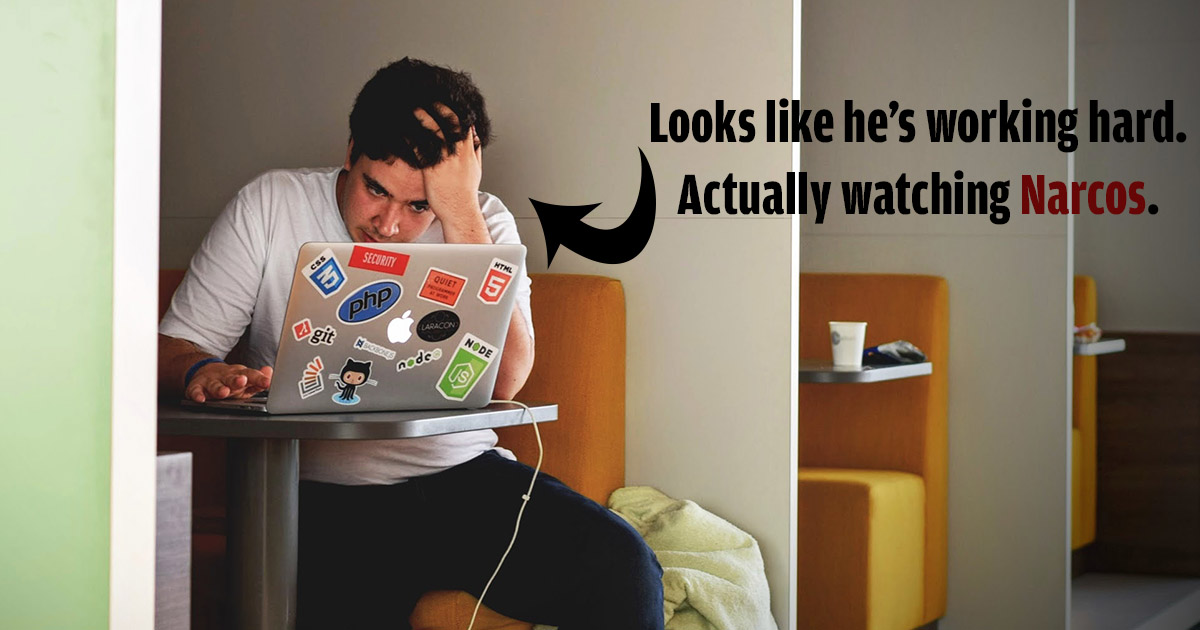
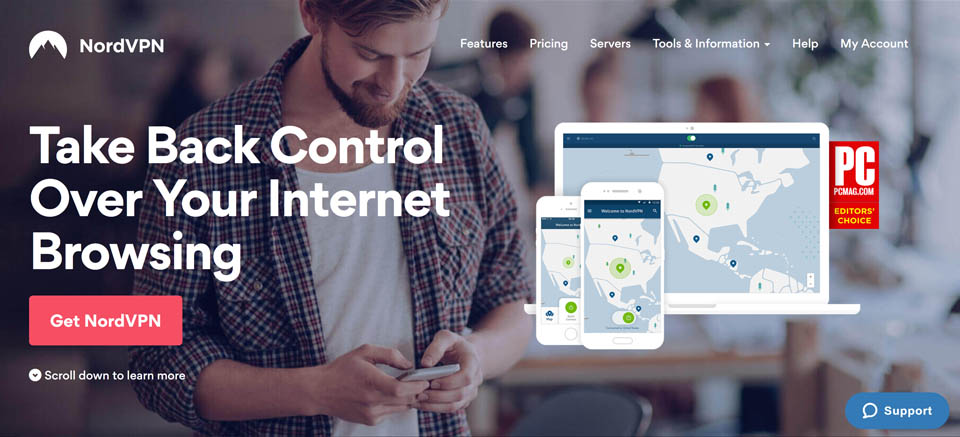
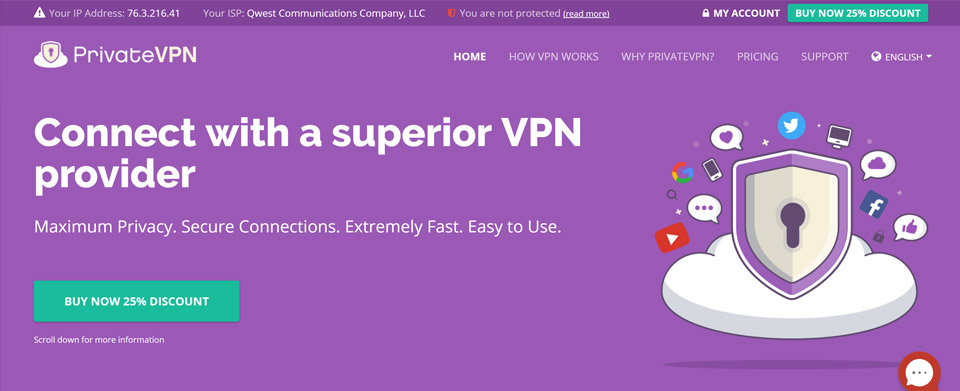
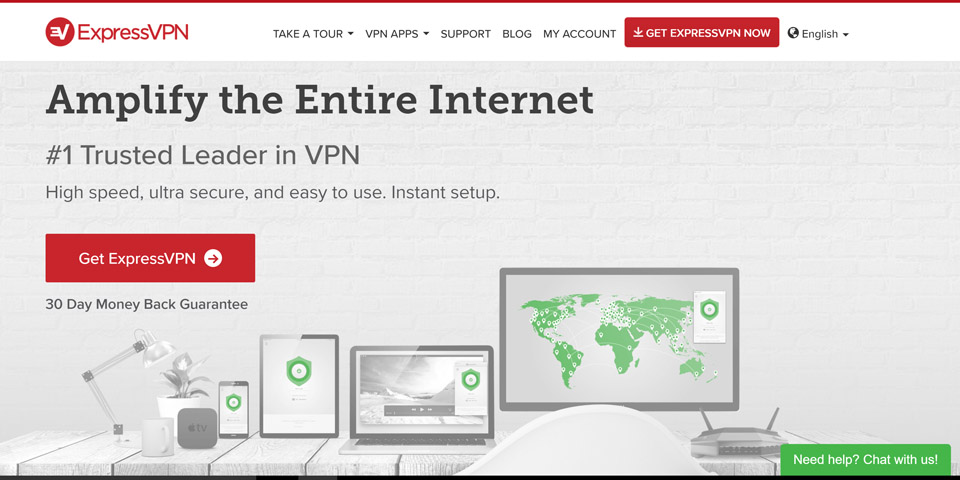
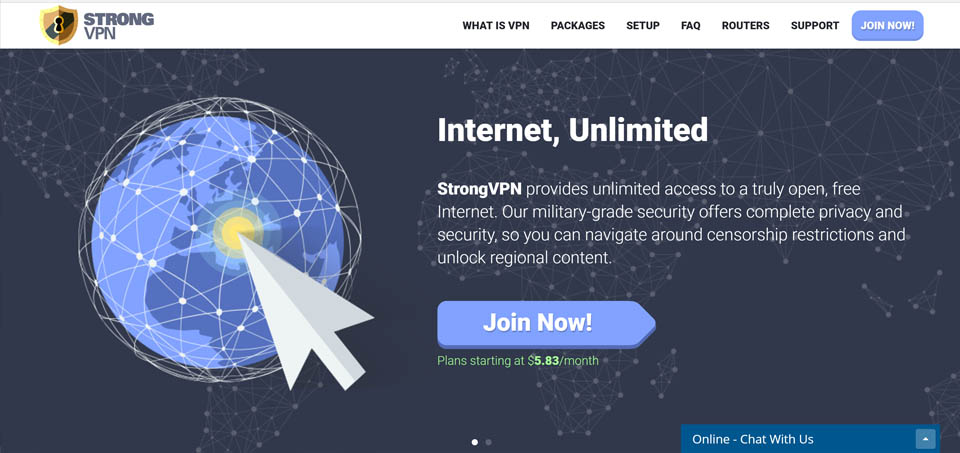
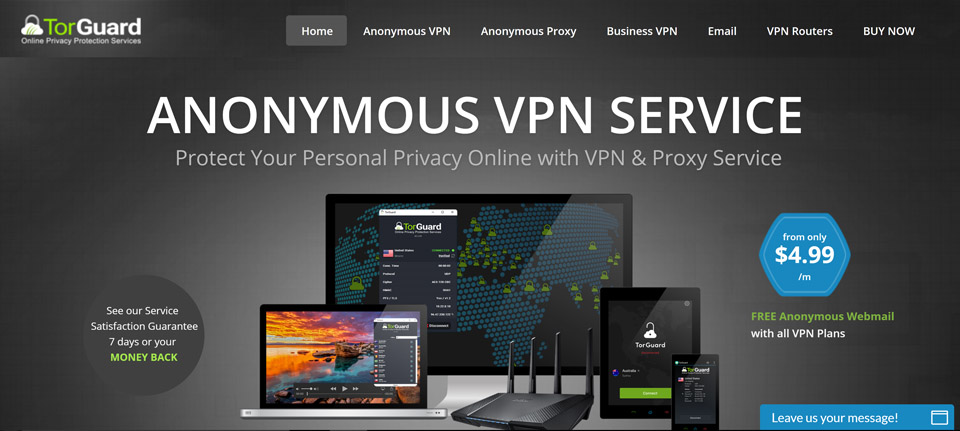
Super useful!! Thank you. But which of those listing VPNs can be used to stream Hulu? You only listed if they work with US Netflix.
Thanks Madison, but I am sorry, I do not know the answer to your question about which ones can stream Hulu. Both services (Netflix/Hulu) are going to employ similar geographic restrictions, so a VPN that can work with Netflix will probably work with Hulu. However, I’d reach out to the companies beforehand and ask directly. This list might be a good place to start. If you find a suitable solution, can you pop back by and drop a comment to let other people reading this know which VPN worked for you?